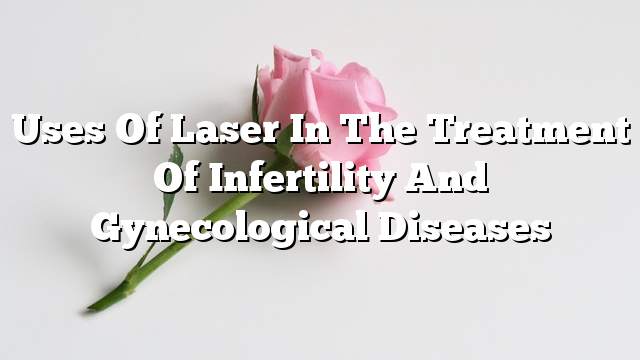Laser is one of the modern energy sources that can be used in the treatment of some medical conditions. The most important characteristic of laser energy is the precision of the steering and the possibility of control of the intensity and the thickness of the current.
The most important areas of laser use in gynecology and infertility are in laparoscopy and in vitro fertilization laboratory.
Endoscopic surgery is one of the modern surgical methods limited to overlap, there is no need to open the layers of the abdomen to perform the necessary surgery. Laser energy is used in decontamination and endometrial treatment, which is one of the main causes of infertility. Endometriosis causes severe pain during the lower abdominal cycle, delayed pregnancy and other symptoms. These symptoms may range from mild to severe. Surgical treatment can improve the chances of pregnancy, especially if the disease is mild and moderate. It is necessary in these operations to be careful to maintain important tissues such as ducts, ovaries and uterus. Hence the importance of laser radiation for its accuracy and safety in treatment.
In vitro fertilization (IVF) laboratory, laser radiation can be used to treat embryos with the so-called embryo finishing to increase the chances of adhesion of embryos in the uterus wall and thus increase the chance of pregnancy. In the early days of the fetus’s age, it is encased in a solid membrane resembling the egg’s crust, and until the fetus attaches to the uterine wall, it needs to break the crust and hatch out of it. In some cases it may be difficult for the fetus to complete this process because of excessive thickness or because of the weakness of the fetus and here comes the benefit of finishing or cracking this cortex in the laboratory using laser radiation. Calculate scientific studies Make sure to use this technique to increase the chance of pregnancy, especially in women over the age of 38 years, and is used in cases of recurrent miscarriage in the operations of pipes. These studies confirmed the safety of the use of laser on the embryos where the current is tipped in a sensitive manner for the fetus, which only sweeps the outer wall without injuring the embryo itself.
This technique was designed to create a hole in the embryo wall to take a cell of the embryo’s primary cells to be examined so that the fetus is safe from chromosomal errors or genetic diseases or to identify the sex of the fetus.
There is more scientific research to take advantage of laser energy in various medical fields.
Dr.. Rami Hamza
